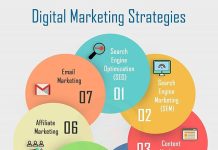
It is a fact that data is changing the world. Data scientists and data engineers are important participants in the field of data utilization, and their respective functions influence how this growing resource for data is used.
Data engineer create, assemble, test, and maintain architectures like databases and massively parallel processing systems. Data scientist organize, clean, and manipulate data.
Data scientists can access and analyse data thanks to the technologies that data engineers create and manage.
What Does a Data Engineer Do?
Data engineering jobs entail the preparing of data for analysis. They focus on production-ready data formats, robustness, scaling, data storage, and security. Data engineers build, test, integrate, manage, and optimize data from many sources. They construct data-generating infrastructure and architectures.
They use big data technology to develop free-flowing data pipelines for real-time analytics. Engineers develop complicated queries to make data accessible.
What Does a Data Scientist Do?
Data scientists gain new insights from data engineers’ preparations. They conduct online experiments, establish hypotheses, and employ statistics, data analytics, data visualization, and machine learning algorithms to uncover patterns and create business projections.
They engage with corporate leaders to understand their needs and communicate difficult findings verbally and aesthetically.
What then is the difference between these two professions?

Differences between a data engineer and data scientist
Data scientists used to serve in the capacity of data engineers. However, the role has been divided into two as the area of data has expanded and evolved, as data collection and management have become more difficult and complex, and as organizations have come to anticipate more answers and insights from the data collected.
Data engineers create and maintain the systems and structures that store, extract, and organize data, whereas data scientists analyse that data to predict trends, gain business insights, and respond to questions that are pertinent to the organization.
The two professions are distinct and diverse, despite the fact that data engineers and data scientists share some skills and that in the past, data scientists were expected to carry out some of the tasks performed by data engineers.
Degree requirements
Both data engineers and data scientists usually hold a bachelor’s degree in computer science or in a related field such as mathematics, statistics, economics, or information technology.
Data engineers are usually software engineers who know Java, Python, SQL, and Scala. They may have a math or stats degree that helps them tackle business difficulties analytically.
Data engineers need a bachelor’s degree in computer science, applied math, or IT. Candidates may need certifications like Google’s Professional Data Engineer or IBM Certified Data Engineer. It helps if they have experience constructing massive data warehouses that can execute ETL on big data sets.
Data scientists are generally given vast amounts of data without commercial problems to solve. The data scientist must study the data, ask the relevant questions, and explain their findings. Data scientists must know big data infrastructures, data mining, machine learning algorithms, and statistics. To operate their algorithms properly and efficiently, they must also be up-to-date on the latest technologies.
Data scientists are expected to be proficient in programming languages such as SQL, Python, R, and Java, and be familiar with tools such as Hive, Hadoop, Cassandra, and MongoDB.
Career Paths
Data engineering jobs isn’t for beginner. Many data engineers start in software engineering or business intelligence/systems analytics to gain exposure to data science’s technologies and infrastructure.
Many data engineers use professions like data architect, solutions architect, and database developer to polish their data engineering skills, learn data processing and cloud computing, and obtain ETL and data layer experience. Some may also have jobs in data analytics to get experience before shifting to data engineering.
Data scientists start as interns or junior data scientists. This entry-level employment allows young data scientists to build their skills and work on assigned tasks before conducting their own studies and solving more ambitious business problems.
Also Read: How do I Become a Data Analyst in South Africa





























